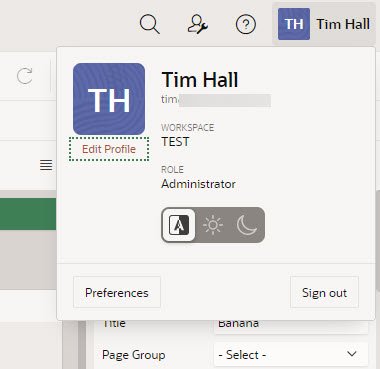I recently had a bit of a rant on email about the current state of Shadow IT at work. Typically, we don’t know it is happening until something goes wrong, then we’re called in to help and can’t, mostly because we don’t have the resources to do it. My rant went something like this…
“This is shadow IT.
Shadow IT is happening because we are not able to cope with the requirements from the business, so they do it themselves.
We need to stop being so precious about tool-sets and use low-code solutions to give the business the solutions to their problems. This allows us to develop them quicker, and in some cases, let them develop their own safely.”
We are not a software house. We are not the sort of company that can take our existing staff and reasonably launch into microservices this, or functions that. In addition to all the big projects and 3rd party apps we deal with, we also need to provide solutions to small issues, and do it fast.
Like many other companies we have massive amounts of shadow IT, where people have business processes relying on spreadsheets or Access databases, that most of us in IT don’t know exist. As I mentioned in the quote above, this is happening because we are failing! We are not able to respond to their demands. Why?
For the most part we make the wrong decisions about technology stacks for this type of work. We just need simple solutions to simple problems, that are quick and easy to produce, and more importantly easy to maintain.
What tool are you suggesting? The *only* thing we have in our company that is truly up to date at this time, and has remained so since it was introduced into the company, is APEX. It also happens to be a low-code declarative development solution, that most of our staff could pick up in a few days. The *only* tool we have that allows us to quickly deliver solutions is APEX. So why are we not using it, or some other tool like it? IMHO because of bad decisions!
You’re an Oracle guy, and you are just trying to push the Oracle stack aren’t you? No. Give me something else that does a similar job of low-code declarative development and I will gladly suggest that goes in the list too. I’ve heard good things about Power Apps for this type of stuff. If that serves the purpose better, I’ll quite happily suggest we go in that direction. Whatever the tool is, it must be something very productive, which doesn’t require a massive learning curve, that also gives us the possibility of allowing the business to development for themselves, in a citizen developer type of way.
It should be noted, we are wedded to Oracle for the foreseeable future because of other reasons, so the “Oracle lock-in” argument isn’t a valid for us anyway.
So you’re saying all the other development stuff is a waste of time? No. In addition to the big and “sexy” stuff, there are loads of simple requirements that need simple solutions. We need to be able to get these out of the door quickly, and stop the business doing stuff that will cause problems down the line. If they are going to do something for themselves, I would rather it was done with a tool like APEX, that we can look after centrally. I don’t want to be worrying if Beryl and Bert are taking regular backups of their desktops…
Are you saying APEX is only good for this little stuff? No! I’m saying it does this stuff really well, so why are we using languages, frameworks and infrastructure that makes our life harder and slower for these quick-fire requirements? Like I said, it’s not about the specific tool. It’s what the tool allows us to achieve that’s important.
What would you do it you could call the shots? I would take a couple of people and task them with working through the backlog of these little requirements using a low-code tool. It might be APEX. It might be something else. The important thing is we could quickly make a positive impact on the way the company does things, and maybe reduce the need for some of the shadow IT. It would be really nice to feel like we are helping to win the war on this, but we won’t until we change our attitude in relation to this type of request.
So you think you can solve the problem of shadow IT? No. This will always happen. What I’m talking about is trying to minimise it, rather than being the major cause of it.
Cheers
Tim…


